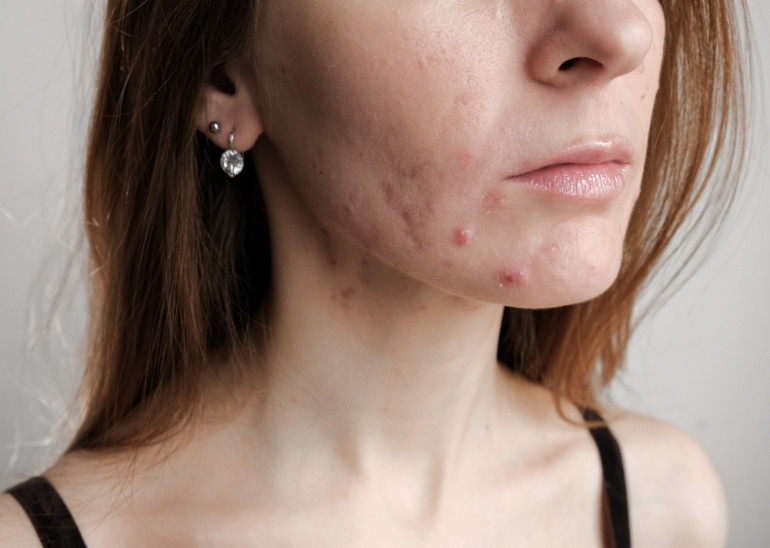June is Acne Awareness Month, a skin condition that many people are all too familiar with.
Most people experience some form of acne during their teenage years, but the condition can last well into adulthood as well, having a profound effect on people’s confidence, self-esteem, and stress levels. And without proper treatment, acne can cause permanent dark spots and scarring, a lasting reminder of the condition. While it’s always a good idea to see a dermatologist to get a personalized, professional opinion on your acne, here are some of the most common treatments for the three types of acne.
Non-inflammatory Acne
Non-inflammatory acne, also known as comedonal acne, is characterized by the presence of blackheads and whiteheads. These types of pimples are called “non-inflammatory” because they do not cause redness or swelling. Non-inflammatory acne is often caused by excess oil production and dead skin cells clogging the poes.
This type of acne is often treated with topical retinoids, a type of medication that helps to unclog the hair follicles and prevent the formation of new pimples. If you’re struggling to keep your non-inflammatory acne under control, try over-the-counter products that contain salicylic acid or benzoyl peroxide.
Inflammatory Acne
Inflammatory acne is characterized by redness, swelling, and the presence of pimples that are filled with pus. This type of acne is caused by an overgrowth of bacteria in the pores, which leads to inflammation and infection.
If you experience frequent inflammatory acne flare-ups, topical antibiotics or benzoyl peroxide may help. These medications help to kill the bacteria that are causing the infection and reduce inflammation. In severe cases, oral antibiotics may be necessary to clear up the infection. It’s important to avoid picking or squeezing pimples, as this can lead to scarring.
Cystic Acne
Cystic acne is the most severe type of acne and is characterized by deep, painful pimples – the kind that some patients describe as under-the-skin zits. This type of acne usually has a genetic basis and is caused by a combination of excess oil production, hormonal factors, and bacterial overgrowth.
Cystic acne usually requires more aggressive treatments like oral medications such as isotretinoin, which is a type of medication that helps to reduce oil production and prevent the formation of new pimples. Oral antibiotics can also help kill excess bacteria before new cysts emerge.
If you struggle with acne, seeing a dermatologist can be key to clearing up your complexion for good. At the Dermatology Center of Acadiana, our dermatologists will work with you to create a custom skincare plan that creates lasting results. Make an appointment by calling (337) 235-6886.

